- Home
- Patricia McLinn
Proof of Innocence Page 8
Proof of Innocence Read online
Page 8
“You’ve been seeing Renee.” J.D. didn’t turn around.
“That’s not—”
God, the idiot was going to lie about something two dozen people could testify to?
“You’ve been seeing Renee,” he repeated.
“I, uh… A man doesn’t stop having feelings for a woman he’s been married to, even if the marriage didn’t work out.”
“Those differences cited in your divorce from Renee weren’t irreconcilable after all?” Dallas asked, dangerously mild.
“Marriage connects you to another person in a way that doesn’t go away. Doesn’t go away.”
In the reflection of the room J.D. caught movement. Dallas. His wife had been gone a long time, but it hadn’t seemed to change his feelings. Was that why he and Evelyn didn’t act on the relationship most of the county knew about?
“Was anything bothering Laurel the past few weeks, Eugene?” J.D. asked, watching his reflection. “Besides the two of you being apart.”
Eugene squinted toward him. “You mean those phone calls? I couldn’t say they bothered her exactly. Just irksome. The phone ringing and no one there. All hours. Why she was halfway to thinking I was making those calls, accused me of checking up on her, but then one came on her number she’d hardly give anybody. Liked to keep it free for emergencies, she always said. And I was sitting right there in front of her. So, she knew it wasn’t me.”
“What did caller I.D. say?” J.D. asked.
“She said the number didn’t show. I told her she should block numbers not identifying themselves, but she said you never knew when there was a call you wanted to take from one of those numbers.”
Another reflected movement.
J.D. shifted for a better angle.
Maggie Frye was a million miles away, thinking something none too pleasant. Something that made her mad at herself, the way she’d been when she tapped the guesthouse fence.
Eugene looked from J.D. to Maggie and back, then to Maggie again. The repeated motion appeared to snap her out of her reverie.
For an instant she met J.D.’s gaze.
She immediately shifted her focus. “Mr. Tagner, who were Laurel’s friends?”
“Friends?”
“Who did she do things with? Social things.”
“Most often we went out for my business. Dinners, dances, and such. And Rambler Farm, whenever the judge had something, of course.”
“I mean her close friends, personal friends, girlfriends. Someone she’d confide in. Someone she’d go to lunch with, go shopping with.”
Eugene shook his head. “Laurel never went shopping with anybody. Said she didn’t want the clerk’s attention divided.”
“She must have had friends.”
“We neither of us needed anybody else.”
“You met her at J.D.’s trial, didn’t you?” Dallas asked.
“Well, I’d known her a long time — barbecues and lunches and such at Rambler Farm. I didn’t know she had an eye for me, too, though. Wasn’t until we talked there at the trial—” He tipped his head toward J.D., as if acknowledging a service. “—that we first saw what we had, knew we were meant to be together.”
“Did Laurel talk about Pan Wade’s murder?” Maggie asked.
Eugene blinked. “Why would she?”
“She must have had thoughts about it, about the case.” When Eugene didn’t respond quickly, she added impatiently. “She was at the trial every day.”
“She thought it was a terrible tragedy, like all of us.” His toneless delivery removed meaning from the words. “And Pan was unlucky enough to be in the wrong place at the wrong time when some drifter passed through. Damned shame. Damned shame.”
Maggie stared at the man. “Surely, Mr. Tagner, you haven’t missed the similarities between Pan Wade’s murder and that of your wife.”
“But…” Eugene’s jaw sagged. “There can’t be. I mean. That would mean … that would mean they’ll never know who killed Laurel? Just like they never found who killed Pan.”
J.D. read Maggie’s expression easily — she believed she knew exactly who had killed Pan and Laurel.
CHAPTER FIFTEEN
“Were you ever going to get around to asking about Pan Wade’s murder?” Maggie demanded of Dallas once back in her car.
“My dear, my dear, this is not Washington, D.C., or its environs. Here in Bedhurst, rushin’ to a point will just get you stuck. There’s a certain rhythm, an accepted way of doin’ things.”
Her huh scoffed. “You showed no sign of looking for a connection between the two cases as Sheriff Gardner asked. As if you were strictly investigating the current case.”
“How else could we hope to give the sheriff our expert opinion on whether the two cases are related? By definition, we must gather information on this case in order to hold it up against what we know of the past case.”
Information. Like Teddie Barrett dying four years ago in a hit and run? Why hadn’t she known?
Because other than tracking Carson’s steps through official records, she’d cut her ties to the Pan Wade case. She hadn’t interviewed the jury, talked with the family, or kept in touch with Ed Smith. She’d gotten the hell out of Bedhurst, like a frightened child pretending it never happened.
And now another woman was dead.
She forced her thoughts to the present and got out the words expected of her. “Questions should be on specifics that directly correspond with Pan Wade’s murder.”
“Not at all. That would limit our enquiry to a disastrous degree. We don’t know what we don’t know until we know it.”
A muffled sound from the back seat brought Maggie’s gaze to the rearview mirror. Carson’s expression was unreadable. Beside the scar near his mouth a dent dug in.
He’d gotten information out of Tagner, particularly that Laurel had been receiving strange calls. Or calls she’d said were strange.
I told her she should block any numbers not identifying themselves, but she said you never knew when there was a call you wanted to take.
A memory had strobed through Maggie’s head. Sitting across from Roy at the Thai restaurant, the tang of peanut dressing on a salad she ate only to have the dressing. The discreet burr of his phone. He checked the screen, hit a button, disconnecting it.
“Need to call back?” Being on-call all hours came with the job, his and hers.
“Blocked. Probably a wrong number.”
Suspicion flared. She snuffed it. Instead, she said to Roy almost exactly what Tagner said to Laurel. Roy gave nearly the same response.
A month later, feelings had nothing to do with it. Evidence proved Roy was seeing — and screwing — Officer Hundley.
Had Laurel’s calls been a signaling system with a lover? A lover as yet unknown?
Maggie looked in the rearview mirror again, trying to view Carson as other women might.
His longer hair made him less austere without softening the angles of features a sculptor could have roughed in. If the sculptor had gone back to refine and smooth, Carson could have been handsome. As it was, his rawness might appeal to some women, while scaring others.
Laurel had not seemed the type to be scared.
If Laurel truly didn’t confide in anyone, no one could confirm — or deny — a possible relationship with Carson.
No one could confirm or deny Tagner’s version of the calls, either. Or of their relationship.
“How’d you know about the calls, Carson?” she asked abruptly.
“I didn’t. Not until he told us. Just fishing.”
She grunted. “What were you trying to discover with the comments about him seeing his first wife?”
“Second wife, not first. Wondered what he and Renee were talking about.”
“Maybe he was asking advice about Laurel.”
Dallas chortled. “Maggie, Maggie. You’ve been workin’ far too hard if that’s all you know about men and women.”
Carson added, “Renee might have been telling Eugene a
ny number of things. How to patch up his marriage with Laurel sure as hell wasn’t among them.”
“You don’t believe everything was fine in the marriage?”
“No.”
She asked Dallas, “You?”
“No,” he agreed with uncharacteristic brevity.
“Stupid to lie about it,” Carson murmured.
“He can’t help it,” Dallas said. “Money’s made things comfortable for him. He doesn’t know how to cope with anything not comfortable, so he pretends it doesn’t exist.”
“Three former wives, he must have had some unpleasantness,” Maggie said dryly.
“Ah, that’s what lawyers are for, to handle such unpleasantness.”
“You represented Tagner in his divorces?”
“I did not,” Monroe said with such affront that Maggie’s lips twitched.
“How’d you know the divorce from Renee was irreconcilable differences, then?”
“Everyone in Bedhurst knows.”
Carson said, “It would be interesting to talk to the lawyer who’s handled Eugene’s divorces. Especially about a pre-nup or other agreement with Laurel.”
He was right. That was a smart place to look, especially if you wanted to steer the investigation away from another path.
“Where does Teddie Barrett’s family live?”
Dallas trumped her plan. “Not now. They’re expectin’ us at Rambler Farm. Make a right-hand turn at the highway.”
Commonwealth v. J.D. Carson
Witness Theodore Barrett (prosecution)
Direct Examination by ACA Frye.
Q. Mr. Barrett, where were you at approximately 6 p.m. on August 12th?
A. (Inaudible.)
Q. Mr. Barrett?
A. (Inaudible)
THE COURT: Teddie, quit laughing now, and answer Ms. Frye’s questions.
A. She called me Mr. Barrett.
THE COURT: That’s how we do things here. No more laughing now.
A. Yes, sir.
Q. Where were you at approximately 6 p.m. on August 12th.
A. That’s the day Pan was killed, huh? Well, then I was at the park.
Q. That’s Bedhurst Falls Park?
A. Uh-huh.
THE COURT: You need to say yes or no, Teddie.
A. Okay.
THE COURT: Ms. Frye?
Q. Teddie, were you at Bedhurst Falls Park on August 12?
A. Yes.
Q. Now, what did you hear there that day?
A. I heard birds and lots of squirrels and the waterfall, and the breeze in the trees and—
Q. Did a time come when you heard voices? People’s voices?
A. Oh, yeah, that. I heard voices.
Q. How were the voices, Mr. — Were they happy? Soft? Sad? Loud?
A. His was loud, real loud.
Q. What were they saying?
A. Couldn’t hear the words precisely, just the shouting.
Q. What did you do after hearing these loud voices shouting?
A. I got on my bike and rode home. Didn’t want to hear no more shouting.
Q. I don’t blame you for wanting to get away from such a scene. One more question: Could you tell whose voices these were?
A. Pan’s and J.D.’s.
Q. That’s Mrs Wade — Pandora Addington Wade — and Mr. J.D. Carson, the defendant?
A. (laugh) Sure.
Q. Thank you. The Commonwealth has no further questions for this witness at this time. Your Honor, a break for lunch now…
THE COURT: Too early, Ms. Frye, too early. We’d best get on with it while we can. Mr. Monroe?
Mr. Monroe: The defense is ready, Your Honor.
THE COURT: Very well, then.
CHAPTER SIXTEEN
Everything about Rambler Farm was welcoming — the graceful tree-lined drive, the crisp white paint, the wide porch with pots of bright yellow pansies flanking forest green steps.
Everything was welcoming except the woman who opened the gleaming black front door.
Charlotte Blankenship.
Charlotte Blankenship Smith, Maggie corrected herself, remembering the sheriff’s news that Ed Smith had married the judge’s older daughter.
Charlotte stared at the trio on the threshold with the blank expression of someone whose mind was a million miles away and wanted to keep it that way.
Expected at Rambler Farm, her ass. Dallas Monroe would lie about what color the sky was.
Charlotte’s green boiled wool jacket matched the porch steps but added an unpleasant cast to her complexion. The cropped jacket focused attention on where a black watch plaid skirt bunched around a thick waist. Maggie was no clotheshorse, but she suspected a supermodel would look dumpy in that outfit.
“Oh, Charlotte, my dear…” Dallas took the woman’s stiff shoulders between his hands, and kissed her cheek, while her arms remained at her sides, a tablet in one hand. At the same time Dallas pivoted her, gaining entry to the house. “Words cannot express how deeply we feel for you in this tragedy.”
To the accompaniment of continued murmurs of condolence, Dallas maneuvered himself and Charlotte deeper into the hallway.
Smooth, Maggie thought.
Carson gave a nod, signaling her to go ahead of him. The motion cast a shadow on his lower face that might have been mistaken for a smile.
“Charlotte, my dear, you remember Maggie, don’t you? Maggie Frye, she appeared before the judge a while back. And you know J.D., of course.”
“I’m sorry for your loss,” she said simply.
“Real sorry about Laurel, Charlotte,” Carson said.
Charlotte’s gaze flicked to him, then Maggie. “I remember you.”
The tone was impossible to read. Maggie got to the point, “We’re here to talk to Judge Blankenship.”
Charlotte’s gaze went to a door down the hall. “The judge can’t see anyone.”
“We need to—”
Dallas spoke over Maggie. “We understand, Charlotte. Perhaps later this afternoon he’ll be ready to receive us.”
“Yes, that should give me time.”
That comment made no sense.
Not happy, Maggie said, “In the meantime, we have questions for you, Charlotte.”
“I spoke with the sheriff already, and I have a great deal to do.”
“I’m sure you do,” Dallas said. “You are the judge’s rock.”
“Yes. I am.”
Maggie clamped down on the desire to tell him to shut up, and focused on Charlotte. “Surely you have time for questions concerning your sister’s murder.”
Without another word, Charlotte pivoted and strode deeper into the house.
Maggie followed, not caring if her passengers did or not. They couldn’t leave. She had the car keys.
A door on the right opened as Maggie passed.
Judge Blankenship emerged from gloom — she got an impression of dark bookshelves, dark leather, dark wood.
“Charlotte?” he blinked as he stepped into the hallway.
“I’ll take care of it, Judge. No need to trouble yourself.”
“I thought I heard…”
“Judge.” Dallas stepped forward, gripping the taller man’s arm. “We can’t begin to tell you how our hearts are breakin’ for you.”
Another blink, then a gradual straightening, like a deflated balloon granted a puff of air. “Oh. Yes.”
“Judge—” his daughter started.
“I’ll see them.” It held a trace of the authority Maggie remembered from Courtroom One. “Nice of you to come, Dallas, J.D.”
Carson stepped forward, murmuring something Maggie didn’t hear. The judge shook Carson’s offered hand and placed his other hand on Carson’s shoulder.
Carson showed every sign of respecting the man who had presided over his trial for murder, that feeling appeared mutual, and no one but her seemed surprised.
“Very well.” Charlotte maneuvered around her father and closed the door behind him. “Come this way.”
&n
bsp; She led them to a sitting room looking over the side lawn. Charlotte, the judge, and Dallas sat on the sofa, Maggie and Carson took chairs at opposite ends of the coffee table.
“And perhaps you remember Ms. Frye, Maggie Frye,” Dallas said to Blankenship, his tone gentle. “She appeared before you several years ago.”
“Ms. Frye, yes. Pan Wade.”
“I’m sorry for your family’s loss. In fact, we hoped to ask you—”
“I saw Laurel just Thursday at the Café,” Dallas cut in. “As bright and beautiful as ever. Did she show any change Friday or Saturday? If anything happened, or you saw a change…?”
“Not at all. She was, as you say, her bright and beautiful self. That morning, before she went out for the day, she hugged me and said how much she loved me.”
Parallel tracks formed between Charlotte’s eyebrows.
They didn’t disappear as Dallas proceeded to ask gentle questions for ten solid minutes.
Perhaps to allow a grieving friend an opportunity to talk about his daughter. But to Maggie they added up to a subtle investigation of Laurel’s murder.
The judge didn’t give them a single piece of new information.
Dallas pulled in a breath, and Maggie slid in.
“Judge Blankenship, were you aware of any connection between the case that brought me here before — Pan Wade’s murder — and your daughter, Laurel.”
He stared off into the distance. Beside him, Dallas gave her a heavy-lidded smile. Could have been genuine, but she doubted it.
Just as Maggie was about to repeat her question, the judge said softly, “No… No, I wouldn’t think so. She was at the trial, of course, as everyone was.”
“Did she and Carson have a relationship?”
“J.D.?” The grieving father turned to him, as if trying to get his thoughts straight. Then he said, “Knew each other, of course. Nothing more.”
“Did she talk about his trial?” Maggie pursued.
“At the time, certainly there was discussion — nothing untoward, you understand. My family knows not to discuss a case. But I’m certain Laurel commented about who was in the audience and such. She is — was — a social person.”
“Anything more recent about the trial or Pan Wade’s murder?” He started to shake his head. Maggie broadened the question. “Anything about Pan at all?”

_preview.jpg) Almost a Bride (Wyoming Wildflowers Book 1)
Almost a Bride (Wyoming Wildflowers Book 1)_preview.jpg) Prelude to a Wedding (The Wedding Series Book 1)
Prelude to a Wedding (The Wedding Series Book 1)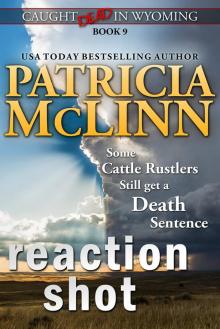 Reaction Shot (Caught Dead in Wyoming, Book 9)
Reaction Shot (Caught Dead in Wyoming, Book 9)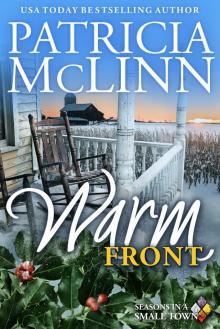 Warm Front
Warm Front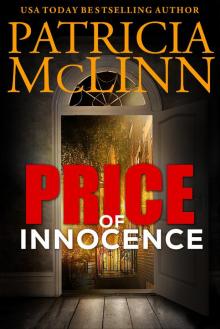 Price of Innocence
Price of Innocence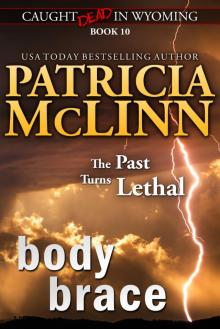 Body Brace (Caught Dead in Wyoming, Book 10)
Body Brace (Caught Dead in Wyoming, Book 10)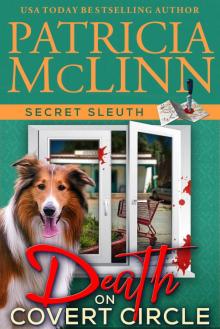 Death on Covert Circle
Death on Covert Circle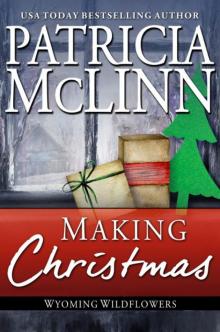 Making Christmas
Making Christmas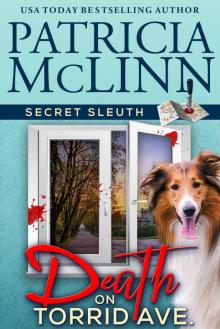 Death on Torrid Ave.
Death on Torrid Ave.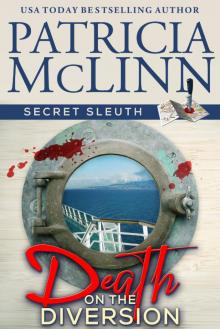 Death on the Diversion
Death on the Diversion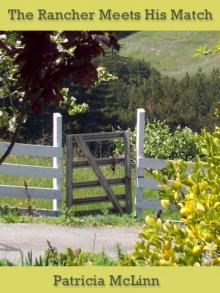 The Rancher Meets His Match
The Rancher Meets His Match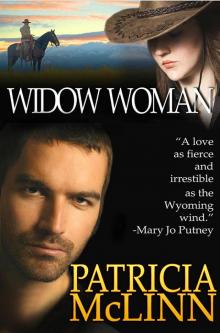 Widow Woman
Widow Woman The Runaway Bride
The Runaway Bride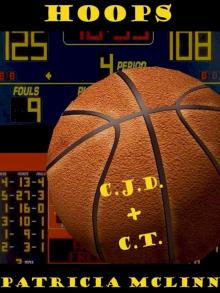 Hoops
Hoops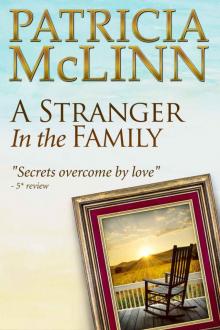 A Stranger in the Family (Book 1, Bardville, Wyoming Trilogy)
A Stranger in the Family (Book 1, Bardville, Wyoming Trilogy)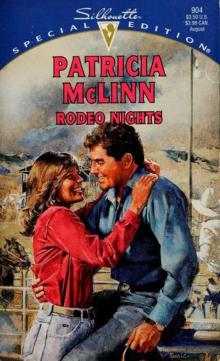 Rodeo Nights
Rodeo Nights Wedding Series Boxed Set (3 Books in 1) (The Wedding Series)
Wedding Series Boxed Set (3 Books in 1) (The Wedding Series)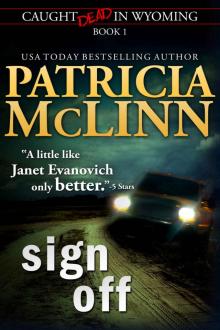 Sign Off (Caught Dead in Wyoming, Book 1)
Sign Off (Caught Dead in Wyoming, Book 1)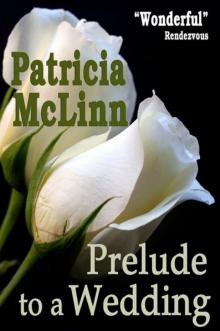 Prelude to a Wedding
Prelude to a Wedding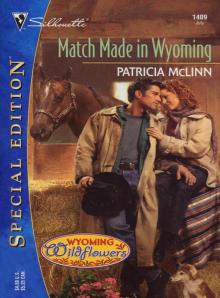 MATCH MADE IN WYOMING
MATCH MADE IN WYOMING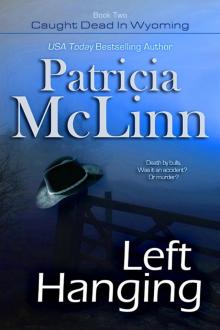 Left Hanging
Left Hanging What Are Friends For?
What Are Friends For?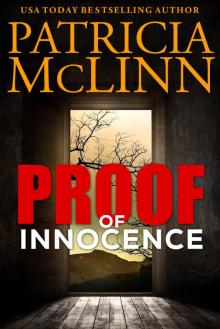 Proof of Innocence
Proof of Innocence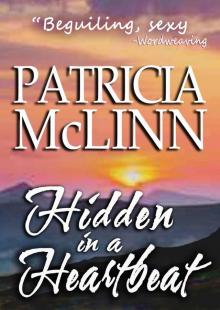 Hidden in a Heartbeat (A Place Called Home, Book 3)
Hidden in a Heartbeat (A Place Called Home, Book 3)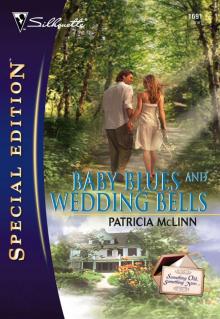 Baby Blues and Wedding Bells
Baby Blues and Wedding Bells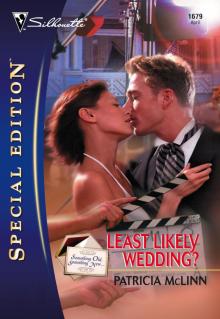 Least Likely Wedding?
Least Likely Wedding? Heart Stealers
Heart Stealers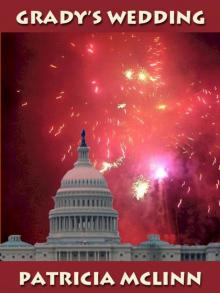 Grady's Wedding
Grady's Wedding Right Brother
Right Brother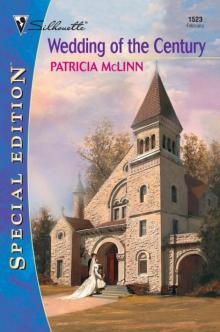 Wedding of the Century
Wedding of the Century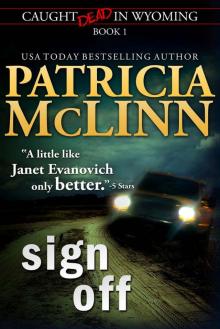 Sign Off
Sign Off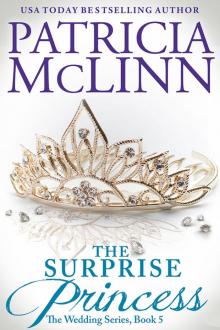 The Surprise Princess
The Surprise Princess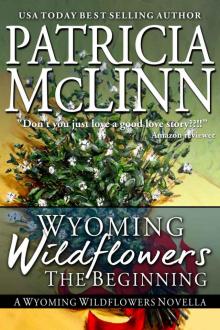 Wyoming Wildflowers: The Beginning
Wyoming Wildflowers: The Beginning